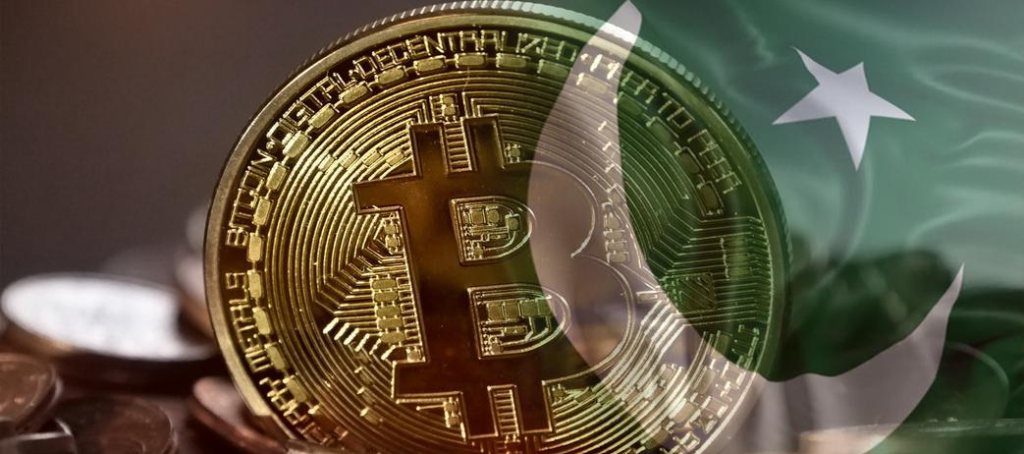The worldwide rise in cryptocurrencies, and the broader blockchain ecosystem, is generating news in most Western countries, from Elon Musk’s tweets about Dogecoin to NFTs owned by famous celebrities like Snoop Dogg and Madonna. It is therefore ironic that Pakistan, the country with the third-highest crypto acceptance (according to the Chainalysis 2021 Global Crypto Index), has no policy that allows it to nurture and expand the industry based on its existing popularity.
According to the Federation of Pakistan Chambers of Commerce and Industry, Pakistanis possessed more than $20 billion in cryptocurrencies in 2020-21, which is more than the country’s total foreign exchange reserve.
Pakistani people have a clear desire to participate in the global crypto revolution, and it is the government’s responsibility to legislate and regulate the rules under which they should engage with cryptocurrencies. Regulation is urgently needed to guarantee that Pakistan reaps the full benefits of a change that is inevitable, whether we like it or not.
India, on the other hand, as a neighbouring country, has achieved significant progress in this sector. The Indian government reversed its crypto prohibition and now taxes cryptocurrency revenues, generating a new revenue source for the government. Western countries have also realised that cryptocurrencies are here to stay. The United Kingdom, for example, has extensive taxation law that governs whether crypto profits are subject to capital gains tax or income tax.
El Salvador made history by becoming the first country in the world to use cryptocurrency as legal cash, allowing residents to use bitcoin to buy their daily coffee or weekly groceries. Other nations in the area are also enacting laws in various stages to either follow suit or control the numerous ways in which cryptocurrencies may be used.
If Pakistan wants to compete in the world arena, effective regulation is critical and urgently needed.
To begin, regulation is required to implement effective KYC processes, so that the worry of money laundering, or worse, may be alleviated by having the proper checks in place. Massive quantities of crypto assets are already being transferred around by Pakistanis, hence regulation for KYC processes is an imperative requirement.
Second, crypto regulation is required to allow the state to benefit from crypto revenue taxation. More and more individuals will trade in cryptos or interact with the crypto ecosystem in some way, shape, or form. The exchequer not profiting from these benefits appears to be a huge wasted opportunity in a country where collecting taxes is difficult.
Furthermore, if Pakistan can allow for favorable corporate taxes for cryptocurrencies, the country might become a regional center, drawing organizations that are developing on the blockchain or employing cryptocurrencies, therefore stimulating fresh foreign direct investment. Third, having a regulated crypto ecosystem could allow for an increase in foreign remittances with many of the newer blockchains offering negligible transaction fees and near instant cross-border payments, which in turn could increase the amount and frequency of foreign remittances entering the country.
Crypto legislation has the potential to minimize capital flight. With the Pakistani rupee falling against the US dollar, cryptos can provide a safe, yet legal, store of value that discourages capital outflow. Finally, on a broader scale, Pakistan has a unique, if transitory, opportunity to be at the forefront of the next technological revolution by adopting and regulating cryptocurrencies.
The last time we had this opportunity was during the Web2 boom, and Pakistan lost out, while China and India sped ahead, producing 301 and 101 unicorns, respectively. A unicorn is a startup with a valuation of more than one billion dollars. Estonia, a country with one-tenth the population of Lahore, and Bangladesh have produced two unicorns. Pakistan has not even come close, with Pakistani companies trying to build a name for themselves globally. Cryptocurrencies and blockchain technology provide a second chance; an opportunity to be a part of Web3 and affect the course of our technological frontier.
It is hoped that the powers that be in Pakistan will take the time to fully comprehend the revolution that blockchain and cryptocurrencies are ushering in and that the necessary legislation will be enacted to allow Pakistan to embrace the change and use it to its advantage for economic growth and prosperity.
Read:
Pakistan Aims To Bring Cryptocurrency Out Of The Dark
What Is Cryptocurrency and how to invest in Bitcoin in Pakistan: Learn with this step-by-step guide
Cryptocurrency craze in Pakistan reaches an all-time high: All Coins become Top Trends
Cryptocurrency legalized in Pakistan by the KP assembly





 Google Employee Forced to Resign for Speaking Against $1.2 Billion Israeli Contract
Google Employee Forced to Resign for Speaking Against $1.2 Billion Israeli Contract